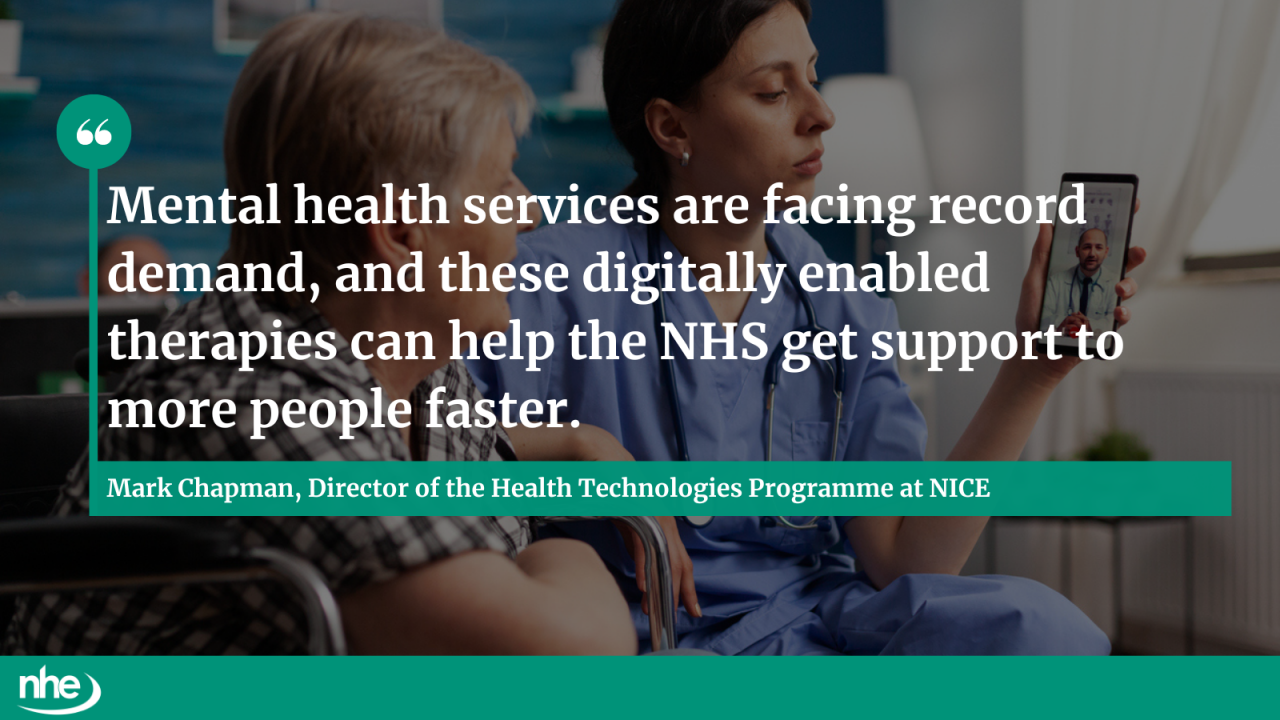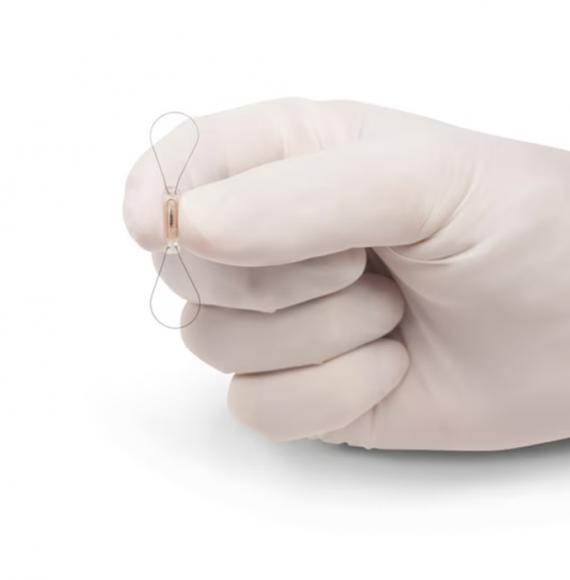Digital mental health therapies could be the key to unlocking thousands of hours of NHS therapists’ time, new analysis from the National Institute for Health and Care Excellence has indicated.
NHS Talking Therapies offers NICE-approved treatments for mental health conditions such as:
- Depression
- Stress
- Anxiety
- Post-traumatic stress disorder
NICE specifically recommends seven digital therapies to treat depression and anxiety disorders in adults.
Digital vs. traditional
NICE rapid assessments compared the digital technologies it recommends for anxiety and depression to face-to-face therapy.
NICE found that digitally enabled therapies for anxiety could save approximately 6,000 hours therapist hours per 1,000 people in NHS Talking Therapies in England – this figure was closer to 6,800 hours for depression technologies.
After analysing evidence collected from NHS England, researchers found that digital therapies for PTSD could also save therapists around 5,000 hours of time per 1,000 people.

This is all against a backdrop of NHS Talking Therapies receiving more referrals than ever. During 2023/24, the service received 1.82 million referrals which is slightly more than during 2021/22 and over double the 884,000 received in 2012/13.
The future of mental health
“Mental health services are facing record demand, and these digitally enabled therapies can help the NHS get support to more people faster,” said NICE’s Mark Chapman, director of the Health Technologies Programme.
“Our rapid assessments show they have promise and the additional evidence collected during this period will help us make sure that they are clinically effective and represent good value for money for the taxpayer.”
NHSE’s national director for mental health, Claire Murdoch, added: “Improving access to mental health care is a top priority for the NHS. The pandemic led to rising pressures, with more people than ever before now in contact with mental health services.
“NICE-recommended digital therapies can increase the support available to people where appropriate, alongside therapists, and help NHS staff to provide care in a flexible and timely manner.”
Digital mental health expert at the University of Nottingham, Professor Chris Hollis, commented: “Digital mental health over the next decade will embrace new technologies including artificial intelligence, wearables, and extended reality.”
There will also be a greater shift to prevention and early intervention, he concluded.
Image credit: iStock



















